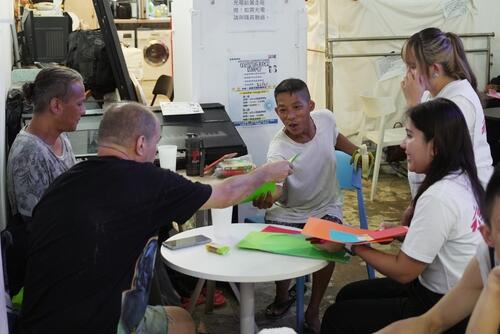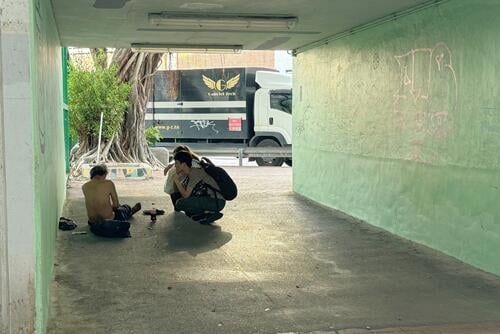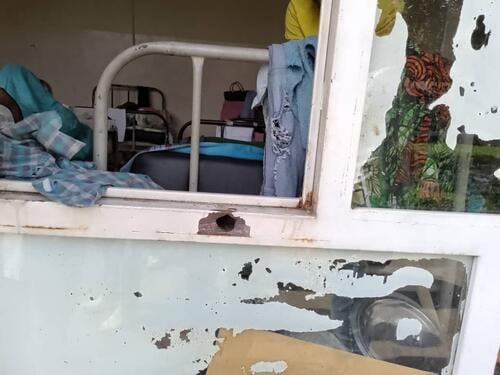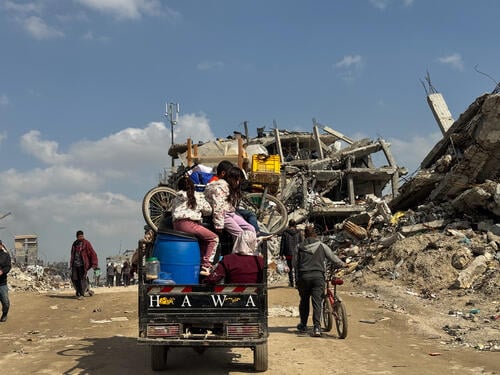As a global financial hub, Hong Kong has an image of prosperity and resource abundance. In its shadows however, groups of people who are consistently marginalised fall outside of the well-developed healthcare system’s reach.
Médecins Sans Frontières (MSF) provided free basic healthcare to communities of people who are experiencing homelessness in Hong Kong’s Yau Tsim Mong and Shum Shui Po districts between August 2023 and December 2024. While the health needs of people experiencing homelessness will need more concerted efforts from different sectors of society, the growing awareness of, and capacity for, holistic medical care in the community were observed. The model developed for this project could be a way forward for different local responders in the future.
Developing and implementing the project offered specific insights. MSF teams observed two major challenges confronting people experiencing homelessness in Hong Kong in accessing adequate healthcare. Firstly, healthcare services are generally not designed with their daily lives in mind, which translates into unexpected hurdles for them when accessing healthcare. Secondly, people’s tendency to seek healthcare before becoming critically ill is generally low, as they lack adequate resources and often prioritise other critical concerns.

Responding to these unmet needs, MSF initiated a model of social-medical partnerships with local non-government organisations (NGOs) to deliver patient-centred care. Our MSF teams provided regular basic health screenings, health promotion sessions, and psychosocial support for people experiencing homelessness; collaboration partners offered ongoing case follow-up. The local partners also received support in capacity-building to ensure continuity of care for people in the programme as our project came to an end in December 2024.
To help people experiencing homelessness to cope with their health needs, the MSF team focused on increasing their awareness and empowering them to take action, while offering support. We aimed to increase people’s health literacy and motivate them to take charge of their health and wellbeing by linking them to care and services.
After months of consistent activities and steady support from the MSF team, changes in people’s attitudes were apparent. Ming*, who lived in a hostel run by the Society for Community Organization (SoCO), one of our partner NGOs, said that he didn’t pay much attention to the condition of his health before attending MSF’s activities, as he didn’t feel anything was wrong and he assumed he was healthy.
A quick check by MSF in May showed me that my systolic blood pressure was over 200mmHg.Ming, a resident of a hostel managed by the Society for Community Organization (SoCO)
“A quick check by MSF in May showed me that my systolic blood pressure was over 200mmHg,” says Ming. Healthy blood pressure levels are 140/90mmHg. A reading as high as 200mmHg meant Ming was at serious risk of suffering a heart attack, stroke, or other life-threatening health problems, and could be considered requiring urgent medical care.
Ming was initially hesitant about consulting a doctor, but both the MSF team and SoCO social workers encouraged him and he went to hospital the next day. When he returned for another MSF health screening in August, he brought with him a record sheet that documented his blood pressure over the three-month period, which showed an improvement. Ming shared with the team that he had adapted his diet and started an exercise routine in addition to taking medication to maintain his health.
Wai*, who regularly participated in our weekly psychosocial support group sessions, shared that he seldom felt comfortable or trusting enough to open up about his emotions and struggles to the people around him. The support group, held at places where people experiencing homelessness congregate, offered a safe space for him to do so, with peers sharing similar life experiences.
During these group sessions, MSF counsellors led participants through discussion on topics like loss and acceptance, stress management, and social awareness, which can be difficult to engage with alone.
“I started coming because the group was an occasion to see friends,” says Wai. “After a few sessions, I realised people were talking about their issues and how they cope. I took inspiration from them on how to handle my own problems.”
Another participant, Fong*, agreed with Wai: “It’s nice to hear about other people’s experiences, but also to give them support and encouragement.”
I don’t think we would have explored services like these if it weren’t for our collaboration with the MSF team.Eric Kwong, ImpactHK Assistant Programme Manager.
During the 16-month span of the project, the MSF team observed a positive shift in approach, not only in the people experiencing homelessness, but also in the support community. Having worked side-by-side with a medical team dedicated to addressing the specific health needs of this group, Eric Kwong, Assistant Programme Manager (Community Development) at ImpactHK, an NGO partner of the project, points out: “There is a culture shift within our team at the community centre.”
ImpactHK recently developed their own rehabilitation team to take over some of the medical and psychosocial support activities MSF developed, expanding their services to deliver holistic care to their service users.
“I don’t think we would have explored services like these if it weren’t for our collaboration with the MSF team,” says Kwong.
Through this medical-social support partnership model, MSF and partners recognised that to support this specific group of people, a holistic and tailored approach that puts patients at the centre of how healthcare is provided, is paramount. This is to ensure their acceptance and trust, revealing specific needs, and facilitating follow-up care and referral into existing public services.
*Names have been changed to protect privacy






